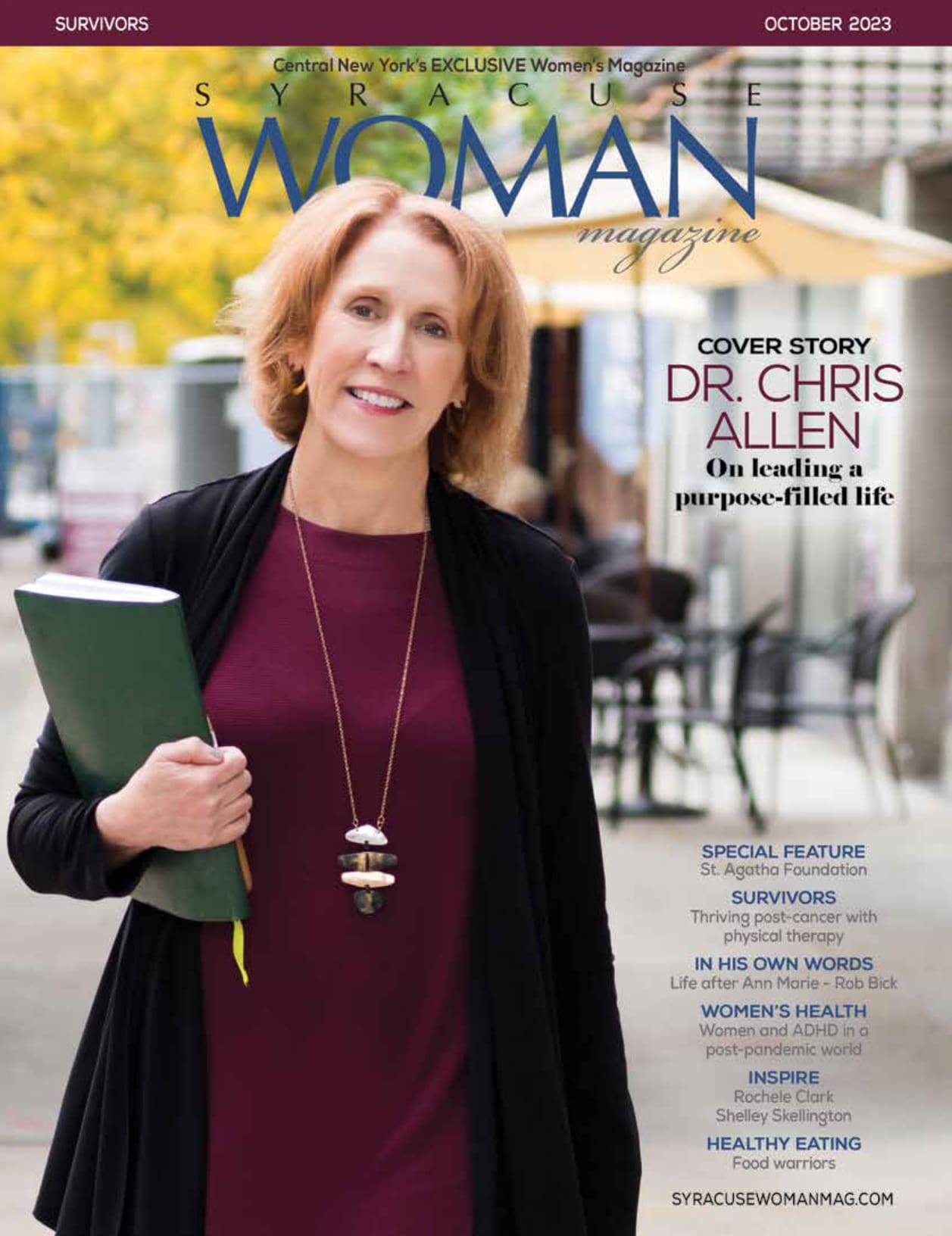By Kate Hanzalik
To know Tania Anderson is to know her as a mother first. Her daughter, Eliza, is her reason for waking up and going to work in the morning. Seventeen-year-old Eliza is a “rock star,” Anderson said. “She is engaging and people just connect with her.”
Anderson has been an advocate for Eliza since she was diagnosed with Wolf-Hirschhorn syndrome, a rare genetic condition, at the age of 13 months. Eliza, like so many other children with special needs, required a variety of services right from the start. Yet even before Eliza was born, Anderson was determined to make the process of finding and accessing support services easier and the world more inclusive for people with disabilities.
In 1998, Anderson joined the Board of Directors of ARISE, an organization that helps people with disabilities throughout Central New York to live independently through a vast array of leadership opportunities and programs ranging from developmental and intellectual disabilities services, mental health counseling, aging services, recreational therapy, and more.
Eight years into her role at ARISE, her perspective changed. “I had been very invested in the work of ARISE, but when Eliza was diagnosed, it became much more personal to me. I was very invested in her success and making sure she was connected with whatever services and support she would need to be successful and to develop from early intervention to preschool to school and then through school,” she said. “I found myself connecting with other parents, usually moms, that were also navigating the system, and doing a little bit of advocacy for them, very informally, and also educating myself as much as I could. And the work of ARISE—which of course connects with people with disabilities and is all about self-advocacy and making sure people are fully included—completely aligned with what I was trying to accomplish with Eliza.”
Anderson, who has a J.D. from Syracuse University College of Law, eventually became the president of the board at ARISE and served in that capacity for eight years as she worked as a law clerk for the New York State Supreme Court.
Life was hectic. In 2015, when Eliza was 10, Anderson learned that the position for CEO of ARISE soon would become available. “[My] then predecessor Tom McKeown had a meeting with me and said he was going to be retiring and so my first thought was ‘Oh boy. Now I gotta do a search and find a CEO. That’s one more thing,’” Anderson recalled. “And then I thought, ‘You know, I’m going to put my hat in the ring’ because the work had become really interesting, challenging, and exciting. And I thought I would just jump off a cliff and try a totally new career. And the board of directors endorsed that decision.”
After seven months of shadowing her predecessor, she became CEO in April of 2016. “I always ground our mission in my daughter because Eliza is the most important person in my life, and she has been getting services at ARISE since she was less than three years old in multiple avenues, from-one-on-one support to help her with independent living skills to help in the schools to recreation services at our [ARISE at the] Farm, the whole gamut. And I have seen as a mom how she has grown successful and more happy because of the work at ARISE,” she said.
Growing Successful
Three people started ARISE in 1979, operating out of an old laundry room in St. Mary’s Hospital in Syracuse. They worked from the premise that people with disabilities should have equal rights, an idea that was “revolutionary at the time,” ARISE explains.
The organization is a pioneer in the independent living movement, which, as ARISE’s Director of Independent Living Services, Nina Lutz, pointed out recently in an ARISE podcast, assumes that “Individuals have the right to determine their own destiny, to make choices, to make their own decisions, and that includes deciding where they want to live, what they want to wear, what they want to eat and when they want to eat it.”
ARISE’s commitment to the movement explains why many people who receive support from ARISE make business decisions for the organization, and why it is a community-based non-profit that helps people regardless of age and disability.
By 2014, ARISE had opened satellite offices in Onondaga, Oswego, Cayuga and Madison counties, offering professional assistance with navigating and improving systems such as the education system, healthcare, and housing. Today, ARISE has 50 programs and 850 employees and volunteers.
That said, Anderson has a lot of work, and the pace is fast, but every challenge is an opportunity to effect change. “I knew when I started this job, it would be the most meaningful and most difficult job I would ever do and I was right,” she said. “If you can keep sight of the fact of why you’re doing this work–because it means a lot to me, because it’s important to the community, because I’m passionate–that will fuel you through a time where you might be thinking, ‘What am I doing?’ Just keeping that connection, I think, is the most important thing. When you have that connection to the mission and you know why your work is meaningful, you will naturally succeed.”
And she did exactly that. “Under my leadership, ARISE is positioning itself in the community to be even more collaborative than it has been in the past, and to be more strategic in terms of partnering with other human services agencies to make sure that the whole sector and the whole system will survive going forward because the business environment is getting much more difficult because of things like Medicaid reform and the general economic conditions and the workforce shortages,” she said. “A lot of things are being thrown at human service agencies and the need keeps increasing. We have to be more and more strategic all the time because it’s so critical. If agencies like ARISE don’t exist, there’s nowhere for people to go.”
All of her hard work over the years has taught her much about leadership. “Being a leader is difficult and many times it is very lonely. There are many times you are making decisions, they’re hard decisions and someone is going to be unhappy, and you have to say ‘no’ sometimes; it’s just the reality. You have a difficult set of circumstances, and you have to pick the lesser of evils, and you may make a mistake. Hard things happen.”
She said that while more and more CEOs are women, especially in human services, sexism still exists. “Sometimes women who have a strong sense of self and are direct and have a strong business sense are seen as an outlier. Even when the woman is the boss, they’re sometimes expected to be softer.” When Anderson is not wearing the hat of CEO, she prioritizes self-care by spending time with Eliza, running with friends, and reading novels. “I’m not always successful [with self-care] but I definitely give it my all.”
Her hard work has also taught her about the value of impact. “The impact that ARISE is having on [Eliza] is multiplied many thousands of times,” Anderson said. “[ARISE] has been a part of my life for 25 years now, in a really direct way, and it always will be. The people that I connect with at ARISE, they’re really fascinating, talented, and committed people. They make a tremendous impact on everyone they connect with, and they have made a tremendous impact on me.”
Get Involved
ARISE has numerous volunteer opportunities, such as helping ARISE at the Farm, an inclusive recreational facility in Chittenango that offers adaptive horse-riding lessons, or ARISE & Ski, a program that provides people with disabilities adaptive equipment and ski lessons. Engineers, therapists, designers and other makers might be interested in volunteering for the Adaptive Design program, which customizes devices and toys made from everyday materials and 3-D printing. ARISE also has full- and part-time employment opportunities for direct service professionals and ways to make charitable donations.
To learn more about ARISE and everything it has to offer, visit www.ariseinc.org





